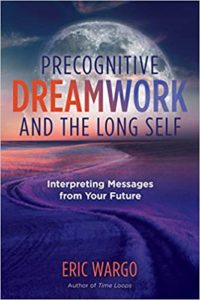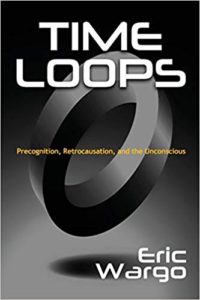Un phenomenon psychologique
Late this past May I attended a symposium called “Alien Abduction Experiences: Normal Science or Revolutionary Science?” at a conference of scientific psychologists in Boston. The speakers included eminent abduction researcher Budd Hopkins and abduction ‘debunker’ Susan Clancy—two polar opposites in the whole abduction question.
As both a member of the psychology organization hosting the symposium and a believer (probably rare in that room) in UFOs—and one also open-minded to the particularly controversial question of abduction—I was excited to see what would transpire, but I also had a lot of trepidation. I knew that Hopkins would be walking into a lion’s den, as the audience consisted of the most “hard-science” side of psychology: those who do laboratory research that quite often discredits the less rigorous practices of therapists and those (like Hopkins) who use methods like hypnosis to supposedly recover memories of strange or traumatic experiences.
For an observer straddling both worlds, the scientific and the Fortean, the event indeed proved to be an enlightening and troubling experience. It crystallized for me exactly why ufology is so marginal to mainstream inquiry. It also reinforced my feeling that this marginalization is “our” fault (speaking now as a Fortean) as much as “theirs.” The non-openness to (and simple nonawareness of) new thinking goes both ways, to mutual detriment.
The first speaker, SUNY psychologist Stuart Appelle, sagely urged scientists to keep an open mind, citing Thomas Kuhn’s thoughts on normal versus revolutionary science and admonishing against a priori dismissal (not to mention ridicule) of ideas that don’t fit existing paradigms. Then Clancy took the floor and, after an assent to Appelle’s recommendation, passionately reiterated the argument in her book Abducted: How People Come to Think They Were Kidnapped by Aliens. Such experiences are, in her view, explainable as sleep paralysis episodes retroactively given a culture-specific construction (i.e., alien visitation) through therapeutic or hypnotic “reconstruction,” which produces elaborate memories that are actually false. She also presented data showing that those who report abduction experiences show more false recall in memory experiments and may be more susceptible to create false memories in real life than most people.
Clancy’s argument is essentially what I too had long believed, having been aware of the questionableness of hypnotic regression, having studied how strange experiences like sleep paralysis are interpreted in very culture-specific ways, and having suffered sleep paralysis myself. Only more recently had I become aware of the greater richness of data not accountable in Clancy’s terms and come to think that her argument could be overly reductive (I’ll argue why in a subsequent post).
Sadly, Hopkins, author of Missing Time and the pioneer in the study of abductions and abductees, had no idea what kind of audience he was addressing. After Clancy, he stood up and blithely rehearsed stories recovered from abductees in hypnosis, clearly unaware (or willfully ignoring?) that hypnotic memory recovery had been soundly discredited by precisely this audience. He supported these stories with faded slides of UFO landing sites and marks on the bodies of abduction victims. (Unfortunately, in an age of PowerPoint, his use of slide projector—which had to be procured specially for him—only added to his appearance of anachronism in this room of cutting-edge researchers.) I expected vocal argument from the audience, but instead the lions sat politely silent—and that polite silence spoke volumes. I don’t think anyone in the audience, except an exasperated Clancy herself, even bothered to seriously challenge him.
The accusation is always that scientists are blind to the evidence that doesn’t fall within their narrow paradigms. But the fact is—and this episode displayed it painfully—the opposite is just as often true. Mainstream ufology is well behind the times in its awareness and understanding of scientific research, especially research in the social and behavioral sciences. In this case, whether or not the psychological scientists in attendance had already made up their minds about abductions didn’t matter. Hopkins presented the kind of data—accounts from hypnosis—whose validity has long been discredited by very sound research. His was the paradigm that had been superseded, and the burden of proof in that context was to defend the validity of his methods. He didn’t, and he didn’t even seem aware of the need to.
In other words, Hopkins had been invited to make a case that the study of abductions is revolutionary science, but he completely failed to rise to this challenge, and thus only reinforced the stereotypes of how retrograde and unrigorous ufology is.
I hate to have to side with debunkers on this isssue, but ufologists should get with the times on the hypnosis question. Although her tone was dismissive, Clancy’s argument is grounded in a very compelling and fascinating body of research, one that ufologists should familiarize themselves with. I’m thinking particularly of the pioneering false memory research of University of California-Irvine psychologist Elizabeth Loftus. Loftus, who was seated right across the aisle from me in this symposium, is actually something of a hero of mine. She had been instrumental in discrediting the tragic 1990s therapeutic fad of “recovering” memories of childhood sexual abuse—memories that generally prove to be false. That fad still is a blot on the reputation of clinical psychology, and it highlights some persistent popular misconceptions about how memory operates.
Memory is now known to be a malleable and pliant thing. The brain doesn’t record experiences like a camcorder. It is constantly reshuffling images and impressions, distilling our experiences to the gist and discarding insignificant details. When we do “remember” an event, the memory is actually a reconstruction using a few salient details but mostly a lot of schematic filler. Memory is also very susceptible to manipulation. In the laboratory, Loftus and her students have shown how easy it is to generate false memories in subjects—from pseudomemories of trivial childhood experiences like getting lost in a mall on up to traumatic pseudomemories of abuse. Such distortions readily occur in human interactions such as therapy and hypnosis as well as in larger group contexts like cults.
Despite persisting popular belief to contrary, abundant research has shown that traumatic experiences do not lead to memories being “repressed.” People avoid thinking about experiences that are painful, but they do not have ‘amnesia’ for them that requires extraordinary tactics like a hypnotic trance (or intense therapy sessions) to uncover. It is common that an individual will lack a context for making sense of a traumatic experience when it occurs, and this lack of context may contribute to it essentially getting avoided and “forgotten”—not lost, but just not revisited until later experiences may shed some new light and lead to a spontaneous recall. This is quite often how real sexual abuse victims remember their experiences after a long duration.
Children may be upset by abuse experiences, but they likely don’t really understand what is happening to them or necessarily grasp that it is wrong at the time. It may only be decades later that, say, reading a magazine article about the subject or talking about their childhood with a sibling might remind them of a long-forgotten episode that then suddenly “makes sense” in terms of new, adult knowledge—leading them at that point to report the experience or seek therapy to deal with it. Abuse episodes that are spontaneously remembered in this way are much more likely to also be corroborated by other evidence or the testimony of other individuals, and thus be genuine. Sexual abuse memories “recovered” in therapy or hypnosis seldom are. Child sexual abuse probably ought to be taken as a model for how to evaluate memories of abduction experiences too.
Abduction researchers would counterargue my child abuse analogy by saying that the memory suppression could be a product of technology or drugs administered by the abductors and not simply the trauma of the experience. But consider: By the same logic, it would be just as likely that such deliberate technology would scramble and distort their perceptions, not only their memory, and thus render any subsequent recollection unreliable. That such perceptual (rather than memory) intervention is occurring in authentic close encounters actually seems to me a highly plausible hypothesis, one that could make the most parsimonious sense of all the data. (I’ll develop this argument also in a subsequent post.)
As Lacombe puts it in Close Encounters (and as the real-life Lacombe, Jacques Vallee, would agree), UFO encounters are “un phenomenon sociologique.” They are also un phenomenon psychologique. And ufologists have a responsibility to know the science in both cases; they need to be able to critically evaluate their own evidence. Unfortunately, the key abduction cases that ufologists continue to cite—the Betty and Barney Hill case, for example, and many others—are tainted by the hypnosis factor. That data simply can’t be accepted anymore, and for the sake of making their case to the scientific community as well as advancing the rigorous study of UFOs and abductions, ufologists need to bring their own methods and standards up to date. It shouldn’t be hard: There is plenty of data that is not tainted by the hypnosis factor: experiences not recovered in therapy or through any kind of “regression” but that are remembered spontaneously—just as in authentic child abuse cases—or experiences for which no forgetting has occurred.
It doesn’t help anyone to cling to outworn theories or bad science. We should be secure enough to trust that good science will only help the ufological case—it just needs to be brought to bear on the subject more fully, and in a more informed manner, than it has been.



